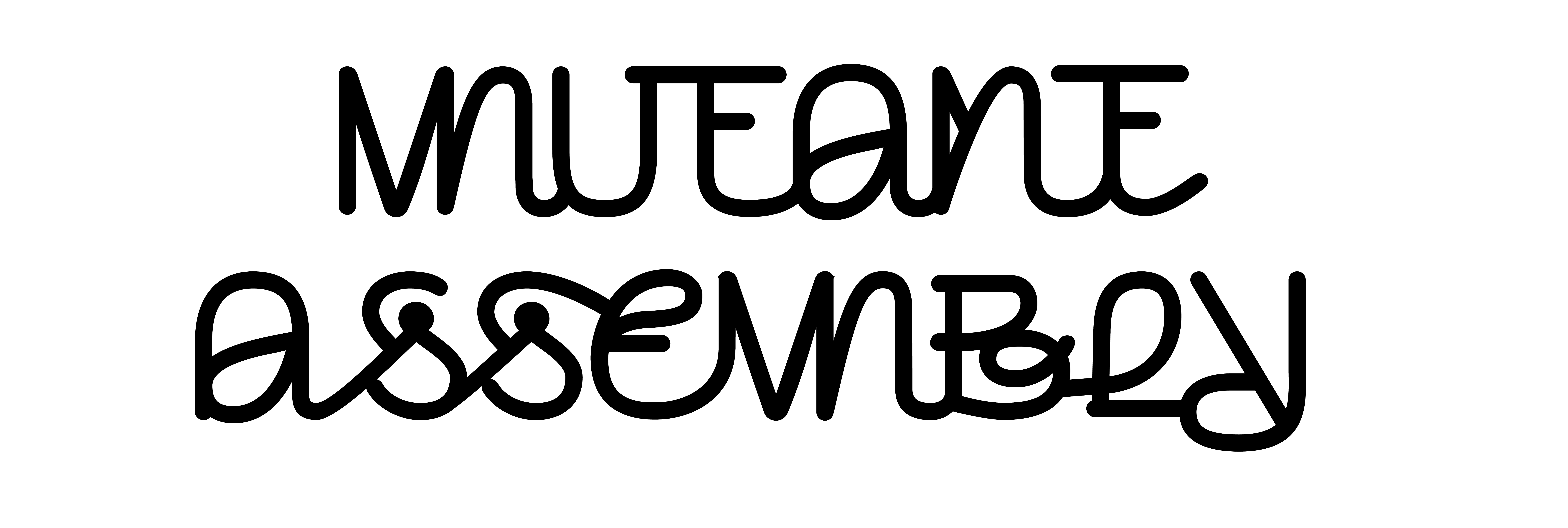

Default settings should be fine. Try those settings if the print preview isn't right.
cmd+P (Mac)
ctrl+P (PC)
Click "More settings" to show all options.
Layout / Orientation: Portrait
Paper size: A4
Pages per sheet: 1
Scale: 100 / Fit to page width / Default
Margins: Default
Options: uncheck all
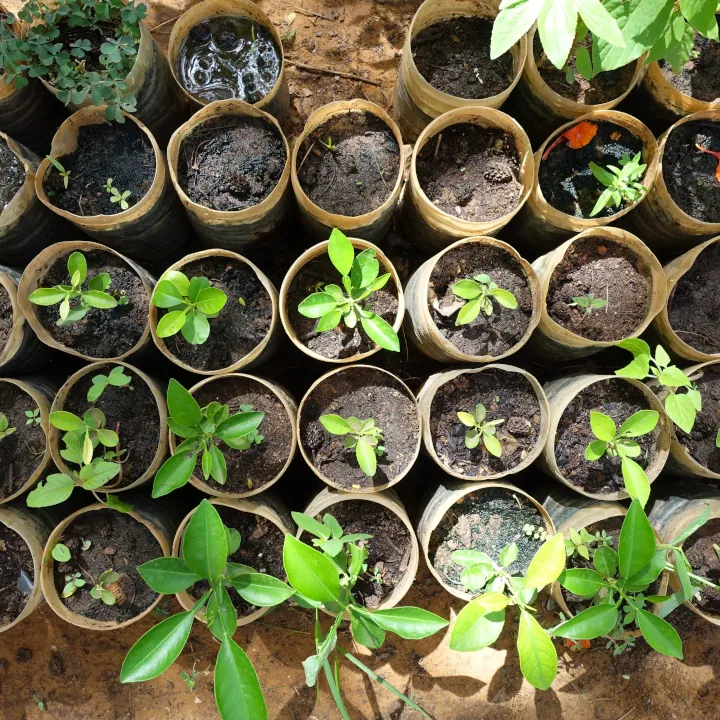



Mutant pedagogies presents a collective, multi-voiced enquiry by contemporary artists, writers, dancers and researchers. Together we depart from post-independence, utopian educational projects to rethink the possibilities of school today. The proposed publication is dynamic in form, mirroring the leading metaphor of mutation.
This publication departs from the latest School of Mutants's gathering in Dakar in July 2022, titled Assembly of Mutants, during which 30 international artists and researchers convened around the question: "comment faire école - comment apprendre différemment ?" / "how to make school - how to learn differently?" / تفعيل مدرسة (taf'eel madrasa) - تَعَلَّم مختلف (ta'alom mokhtalef). Together we explored: How to learn with the body? How to learn from a place? How to centre community knowledge? How to teach in non-hierarchical ways?
The contributors created essays, notes and drawings, interviews, and dense materials based on the situated experience of each participant - from para-institutional learning spaces for black community knowledge in Brazil to institutes for radical pedagogy in Egypt - but also on the collective discussion of global issues in education, research and "epistemologies of the South" (a term we borrow from B. de Sousa Santos). The backdrop of our reflections is a shared critical reflection on the state of present education, starting with the historical construct of the University in colonial and post-colonial contexts and a collective examination of current initiatives and speculation on potential new models. This publication project aims to disseminate further the content created in this gathering but also enrich it and complement it with new contributions to the debate on the decolonization of knowledge and the reinvention of learning in African and Afro-diasporic worlds.
Our approach is an experimental publication that will assemble a dynamic set of essays, interview transcripts, lively materials, and visual works. Our aim is a space for dialogical research, mutation and cross-contamination of different perspectives on pedagocial mutation. We also wish to reflect on the notion of authorship and put into practice the principles of non-hierarchy and decentralized autonomy and mutation discussed in the essays. Towards this end, we are proposing:
The Assembly of Mutants formed part of the exhibition UFA, Université des futurs africains curated by Oulimata Gueye, which took place at le Lieu Unique in Nantes in 2021 as part of the africa2020 season. The Assembly of Mutants is produced by Point Sud, a program of workshops and conferences in Africa, funded by the German Research Foundation (DFG) and coordinated by the Goethe University Frankfurt, Germany. The Publication project is part of the Het Nieuwe Instituut research residency programme. Organisational Committee: Oulimata Gueye; Hamedine Kane; Julien McHardy; Stéphane Verlet-Bottéro. Scientific Committee: Felwine Sarr; Katharina Schramm; Mamadou Sy.
Editorial team
(researchers / curators / writers)
Oulimata Gueye, Stéphane Verlet Bottéro, Hamedine Kane, Mamadou Diallo, Emilie Aurat, Julien McHardy
Contributors
Felwine Sarr, Seloua Luste Boulbina, Ana Pi, Joseph Tonda, Maria Aparecida Moura, Ntone Edjabe, Nolan Oswald Dennis, Ken Bugul, Carole Diop, Baptiste Brun, Catitu Tayassu, Daniel Sciboz, Dulcie Abrahams Altass, Eyumane Baoulé Assengone, Fatima Bintou Rassoul Sy, Fatou Kiné, Hamedine Kane, Judith Rottenburg, Julien McHardy, Karim-Yassin Goessinger, Khouma Gueye, Katharina Schramm, Kuukuwa Manful, Leuz Diwan G, Mamoudou Sy, Marie Hélène Pereira, Mourtada Gueye, Nathalie Vairac, Oulimata Gueye, Romain Baudot, Stéphane Verlet Bottéro, Tabara Korka Ndiaye, Thierno Seydou Sall and Fehe
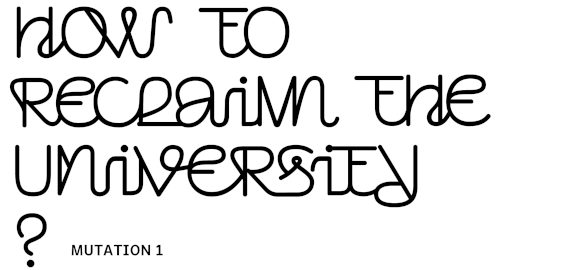
Does the university have a monopoly on knowledge ? Certainly not. Which kind of colonial biais are reproduced in adopting the western pattern Popular universities, para-institutions and community contexts are spaces where knowledge is created and shared. It is crucial to center these knowledge economies for a critical approach to education as commons.
Sodo Badé - Théâtre de l'Engouement
Felwine Sarr: opening remarks and questions for the week.
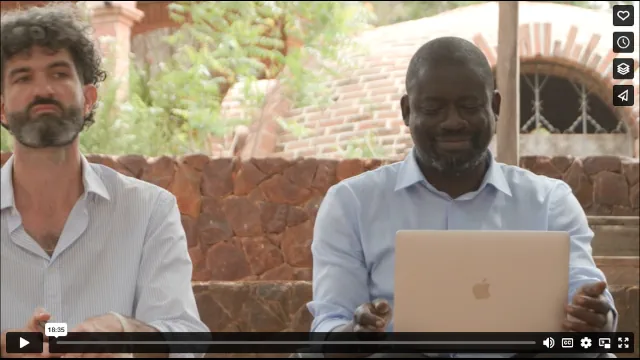
Maria Aparecida Moura: Plural knowledge, orality and situated narratives : methodological approaches related to the Brazilian context.
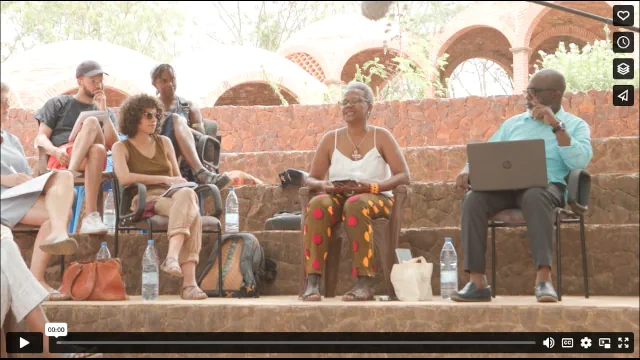
Joseph Tonda: The School System as Mutants Generating Apparatus.


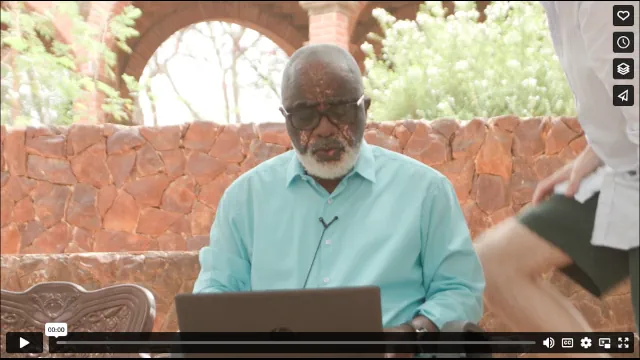
Thierno Seydou Sall: Ndank Ndank (Prendre son temps).
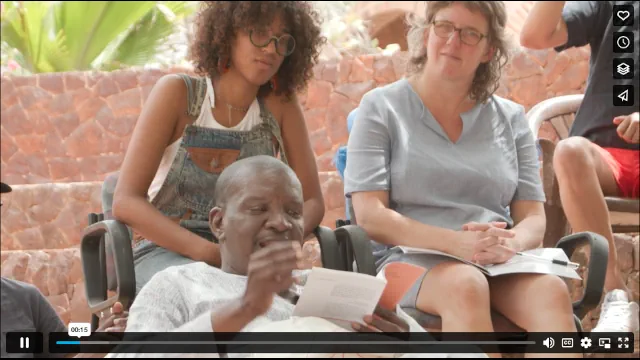
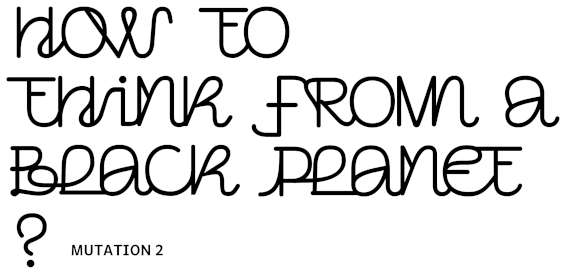
To overcome the universal, technoscientific structuring of the world and the oppressive boundaries of where and by whom knowledge is produced, implies reclaiming the whole Earth as a learning space. We must unlearn, occupy, and follow the fugitive path. These two workshops explore what is thinking from a Black Planet.
Sobo Badé - Théâtre de l'Engouement
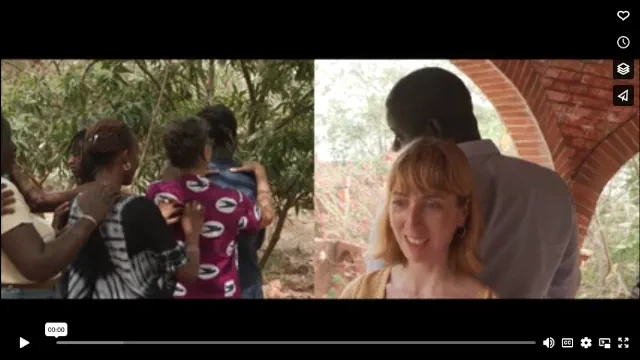
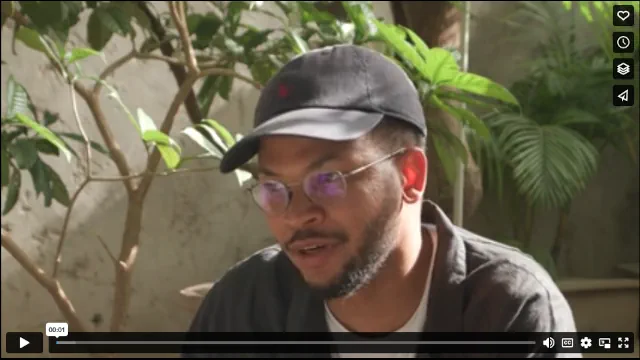
Nolan Oswald Dennis: FREE EARTHS, low entropy and the image of a black planet (a collective exercise for thinking with the world).
"In the realm of thought, man may claim to be the brain of the world ; but in real life where every action affects spiritual and physical existence, the world is always the brain of mankind ; for it is at this level that you will find the sum total of the powers and units of thought... "
Ahmed Sekou Toure, 2nd Congress of Black Writers and Artists, Rome,1959.
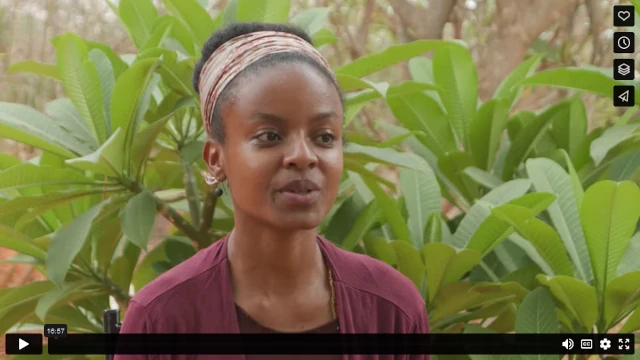
Ana Pi: STEADY BODY - peripheral dances, sacred gestures.
Vitality and dance rhyme have always rhymed, even at the times of the cruel apocalypse. Atlantic Ocean. Raw, wound. Our bodies remember it until now. Our imagination fights amnesia. If we meet here, it's because dance has blessed our way. Ancestral technology of resistance. Through movement we are still, the entire Earth.
What futurity gestures are these that disobeyed the impossible?
Compte rendu dessiné des workshops :

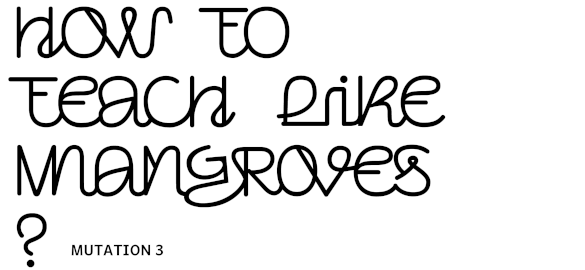
The mangrove schools of the PAIGC in Guinea-Bissau, invented a militant education inseparable from the natural environment. What happens when the teacher-learner hierarchy is dissolved in favor of rhizomatic collectives that include more than humans? How to take down the “Hostage School” of coloniality by reactivating past experience and relationships?
Centre Mampuya
Eyumane Baoulé Assengone: Bambougar Mbambouxar.
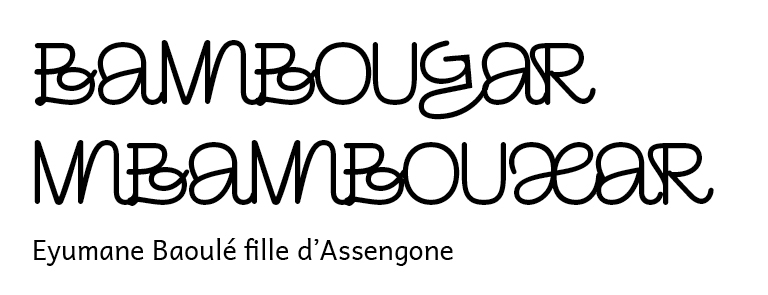
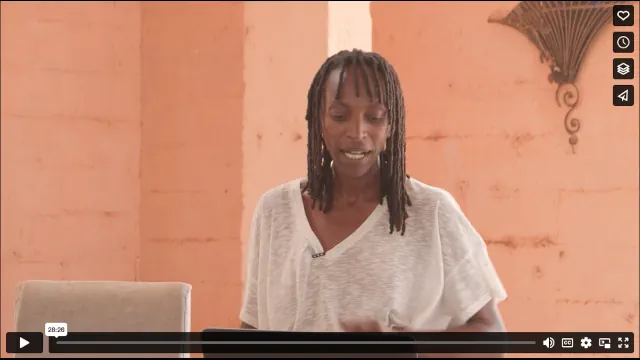
Mamoudou Sy: Three scenes of education practices in the 19th and 20th centuries in the Senegal Valley (African education, arabo-islamic school, French School).
Nathalie Muchamad: Pour une fiction non-alignée/non-aliénée (reading by Nathalie Vairac).
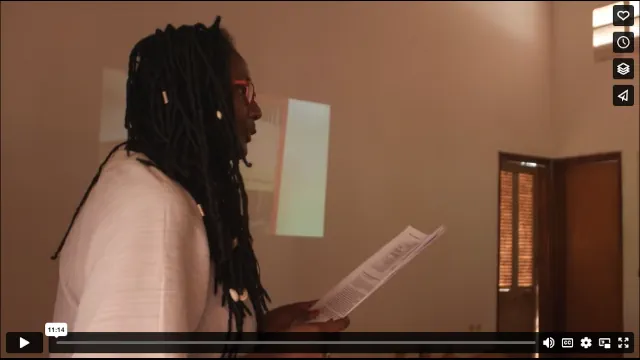
Mohamed Mbougar Sarr: Ñaangooj ou l'invention perpétuelle du même (reading by Marie Hélène Pereira and Hamedine Kane).
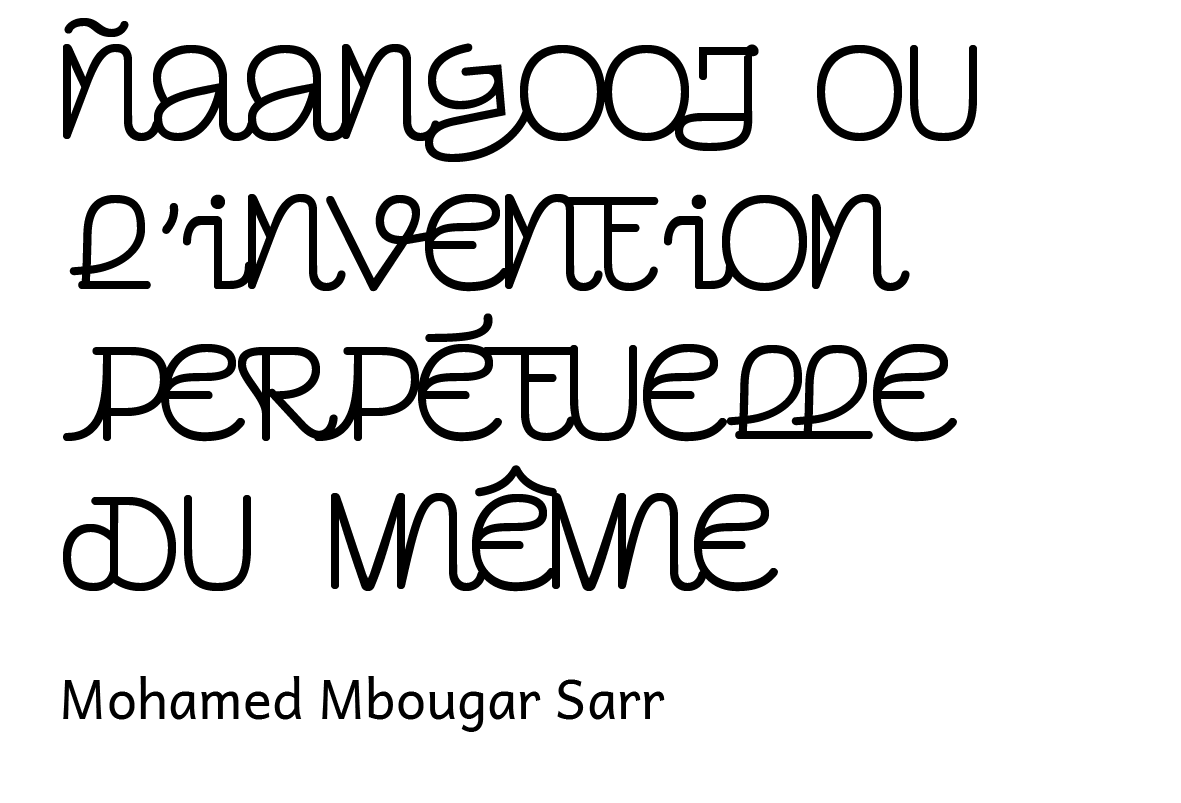
Issa Fofana: Technology and mutation.
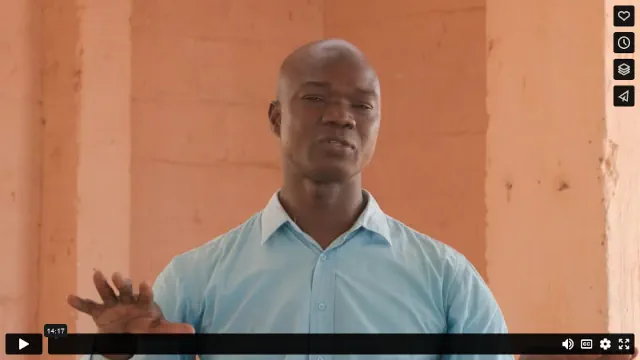
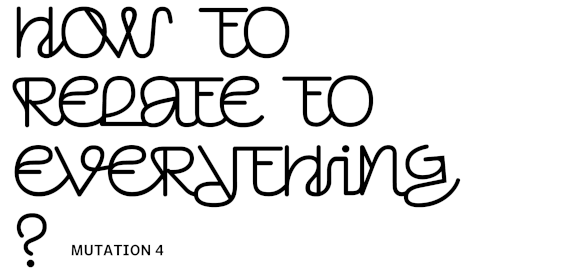
Regenerating the Earth comes with restoring the body's centrality in experiencing the world. Being-in-relation in the world is a consciousness of the co-presence of multiple others, not just human bodies. According to Souleymane Bachir Diagne, the experience of African art shows that a “cosmology of emergence” breathes force into all living beings, minerals, and objects, thus opening multiple possibilities of embodied terms of exchange between humans, and other-than-humans.
Karim Yassin-Goessinger: Letting pigeons teach us.
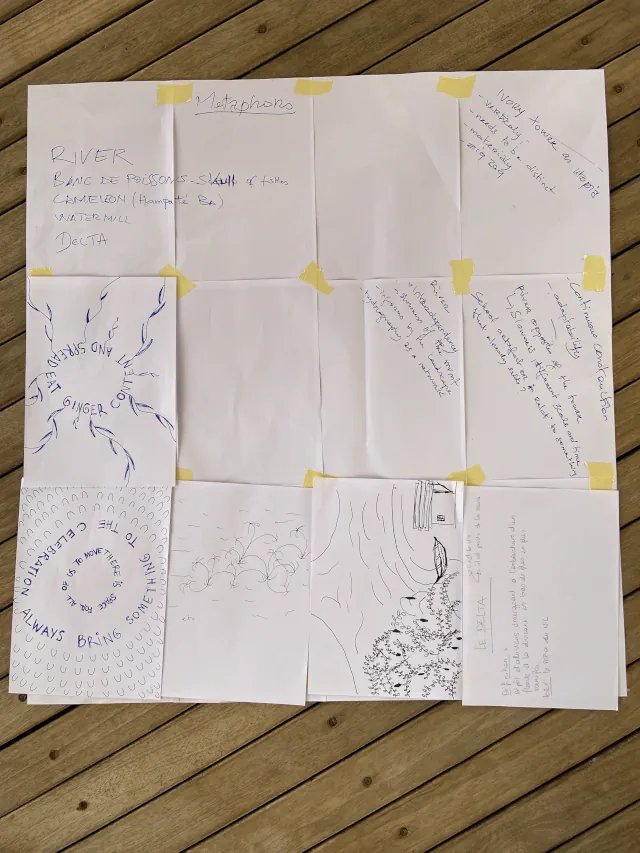
Film program introduced by Tabara Korka Ndiaye.
Taking place just a few kilometers away from the Ndayane mega-harbour construction project, the Assembly faces the necessity to address the logics of dispossession, extraction and ecocide that characterize so-called "development". The films gathered in this program address the body as repository of the violence of colonial modernity, but also as a site of memory, resistance and interspecies liberation.
NoirBLUE - déplacements d'une danse // Ana Pi (27 min, 2018)
In the African continent, Ana Pi reconnects with her origins through the choreographic gesture, engaging in a space-time experiment that combines traditional and contemporary movements. In this dance of fertility and healing, the black skin under the blue veil is integrated with space, reenacting new forms and colors that evoke ancestry, belonging, resistance and the sense of freedom.
Mangrove School // Filipa César & Sónia Vaz Borges. (35 min, 2022)
Mangrove Schools is a tribute to the "liberation schools" conceived by the philosopher and activist Amílcar Cabral and the PAIGC during Guinea- Bissau's war of independence against Portugal. It is a fictional work based on research and testimonies collected by the historian Sónia Vaz Borges and the artist Filipa César.
Le temps de dire non // El Hadji Demba DIA produit par PLAN B (13 min, 2021)
Bargny, commune de 70.000 habitants, est la nouvelle banlieue industrielle du Sénégal. Elle est polluée par la centrale à charbon et par la cimenterie Sococim, asphyxiée par l'installation du port minéralier et par l'avancée de la mer. Les populations sentent l'urgence de lutter pour préserver leur environnement, devenu invivable. A leur côté : les activistes Fadel Wade et l'association Takkom Dieri propulsent le combat à l'échelle internationale.
Xaar Yalla // Mamadou Khouma GUEYE, produit par PLAN B (25 min, 2021)
Elle avance vers nous. Elle avance contre nous. Elle avance avec nous ... Elle c'est la mer avance sur la ville de Saint- Louis, la « Venise du sud », dont certains quartiers,Guet Ndar et Ndar Toute, enclavés entre la mer et le fleuve, risquent de disparaître, tout comme Ndoud Baba Diéye, une île des alentours ...
Kédougou // Mamadou Khouma GUEYE, court-métrage documentaire, (2017)
Guinaw rails // Kady DIEDHIOU, court-métrage documentaire, (13 min, 2014)
Dior Leye se lève tous les jours à 5h du matin, traversant les rues sombres et obscures de son quartier insécurisé et l'imposante autoroute à péage qui, comme un barrage, la sépare de la route nationale pour aller au marché central de poisson.
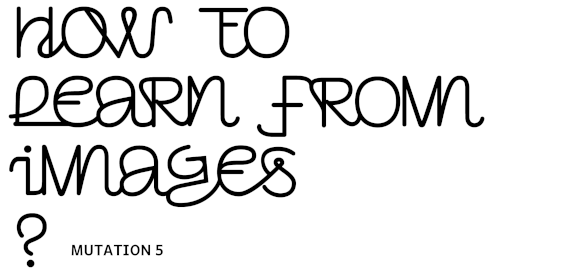
Discussion and lunch with Plan B. Plan B collective strives to make cinema accessible for the inhabitants of Dakar suburbs. Playing with collective energy, the group of young filmmakers also produces and distributes its own films. They embrace the idea that art must create hospitality for ordinary people, and participate in the representation and consciousness of social and political realities, though at times difficult.
Plan B - Lac Rose
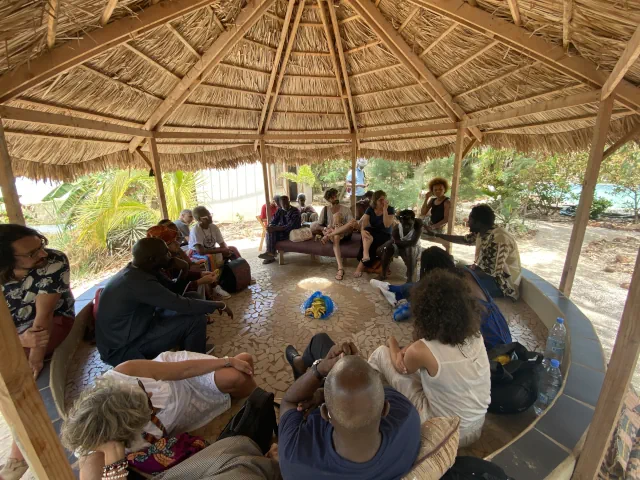
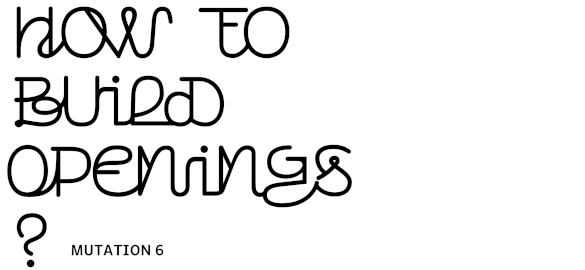
The diverse built layers of Dakar indicate different historical, political and social narratives that intertwine in the everyday experience of the city and the material relation to space and time. Architecture, art and thought after independence, tell of patterns of circulation and translation. Senghor's philosophy of Negritude paved the way to understand how notions of rhythm and aesthetics interplay in the colliding encounter of African knowledge traditions and imposed extra-continental epistemic models. These mutations are essential to understand contemporary Senegalese culture.
Raw Material Company
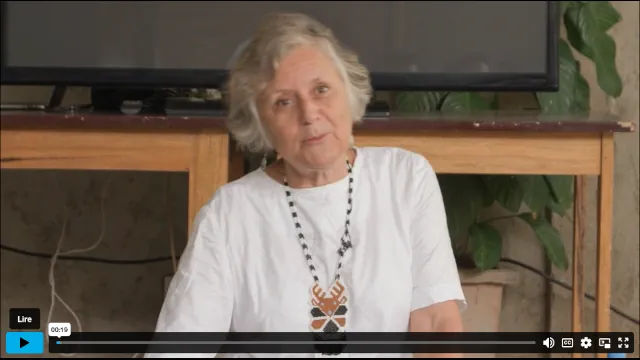
Seloua Luste Boulbina: En finir avec l'Afrique.

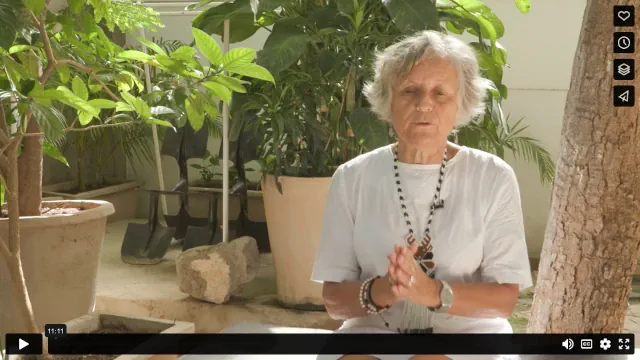
Carole Diop and Daniel Sciboz: Learning from Dakar.
In this conversation, Carole Diop and Daniel Sciboz discuss their research projects Learning from Dakar and Dakarmorphose, which revolve around the architectural metamorphosis of the capital of Senegal.

Judith Rottenburg: Aesthetics of forms and colors in post-independence Senegal.
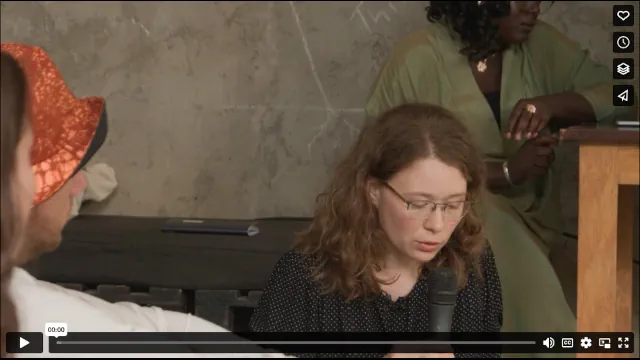
Nathalie Vairac: Performance.
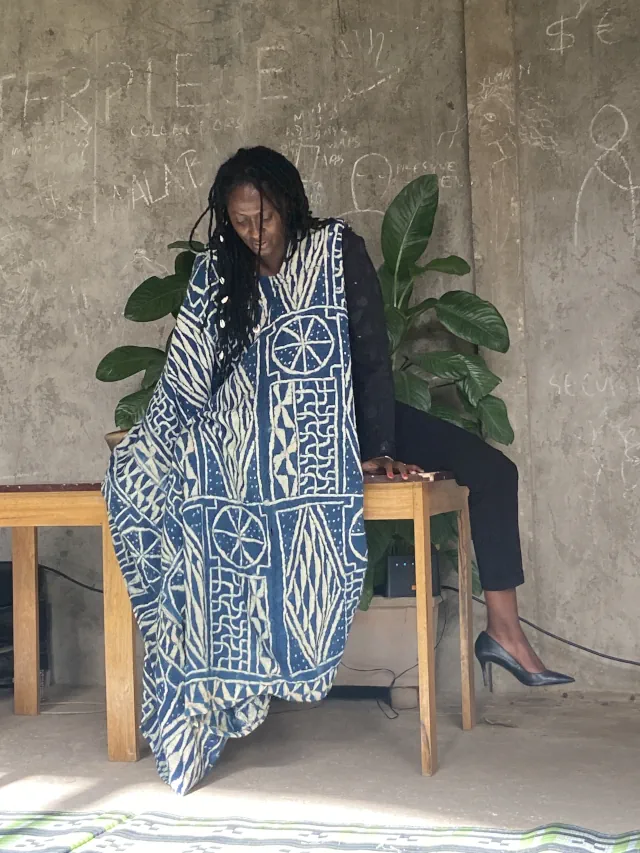
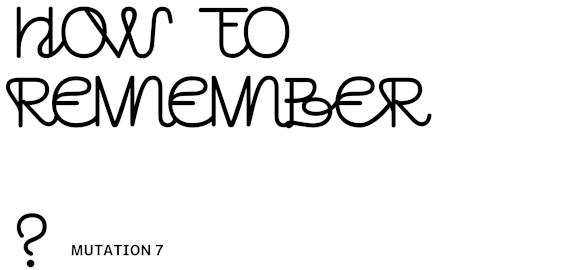
Thierno Seydou Sall et Fehe: Recital.

Leuz Diwan G: Improvisation.


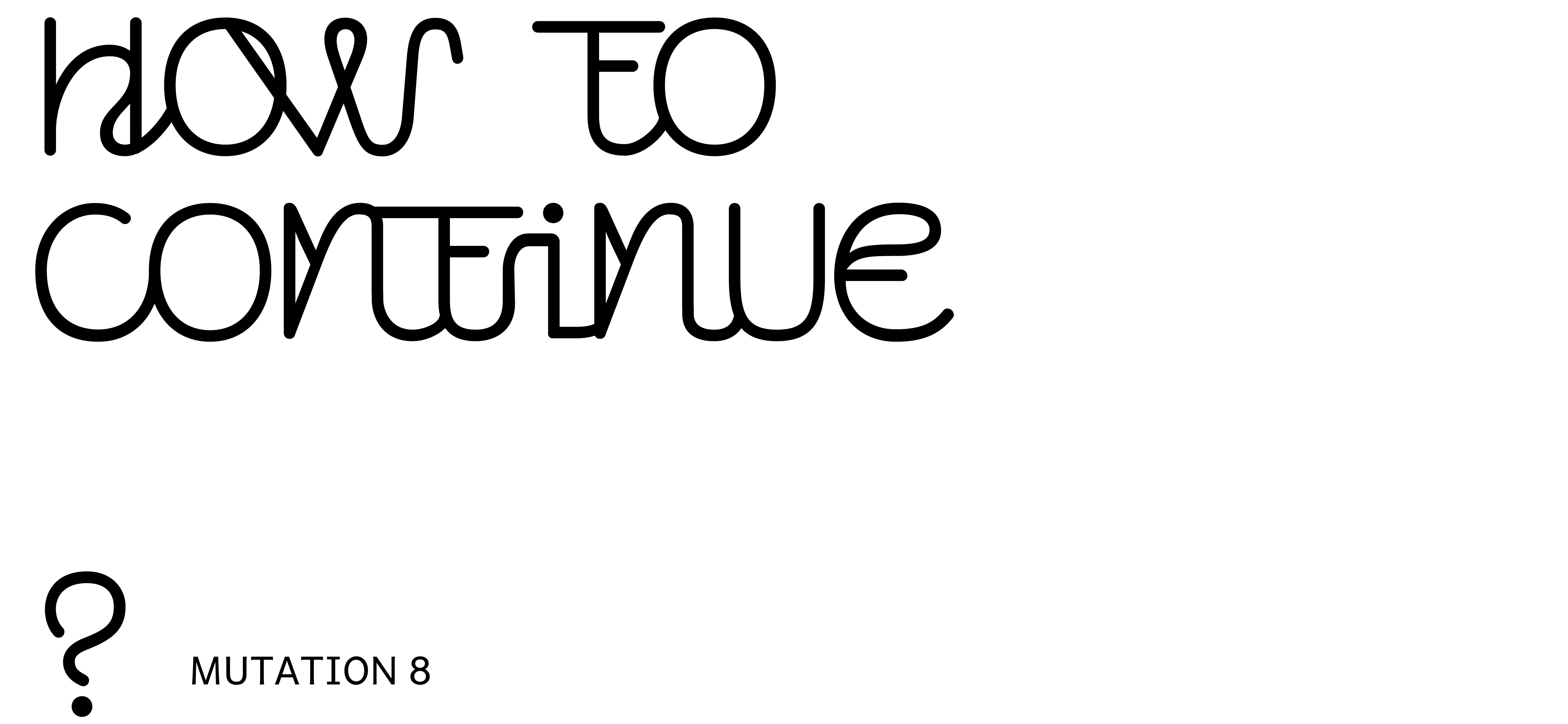
This section is open to the next chapter. What are the pressing issues to deal with? How to put knowledge into action? We dedicate this section to the new generation of artists and researchers who explore daring paths.
Anna Diop Dubois: Recital.
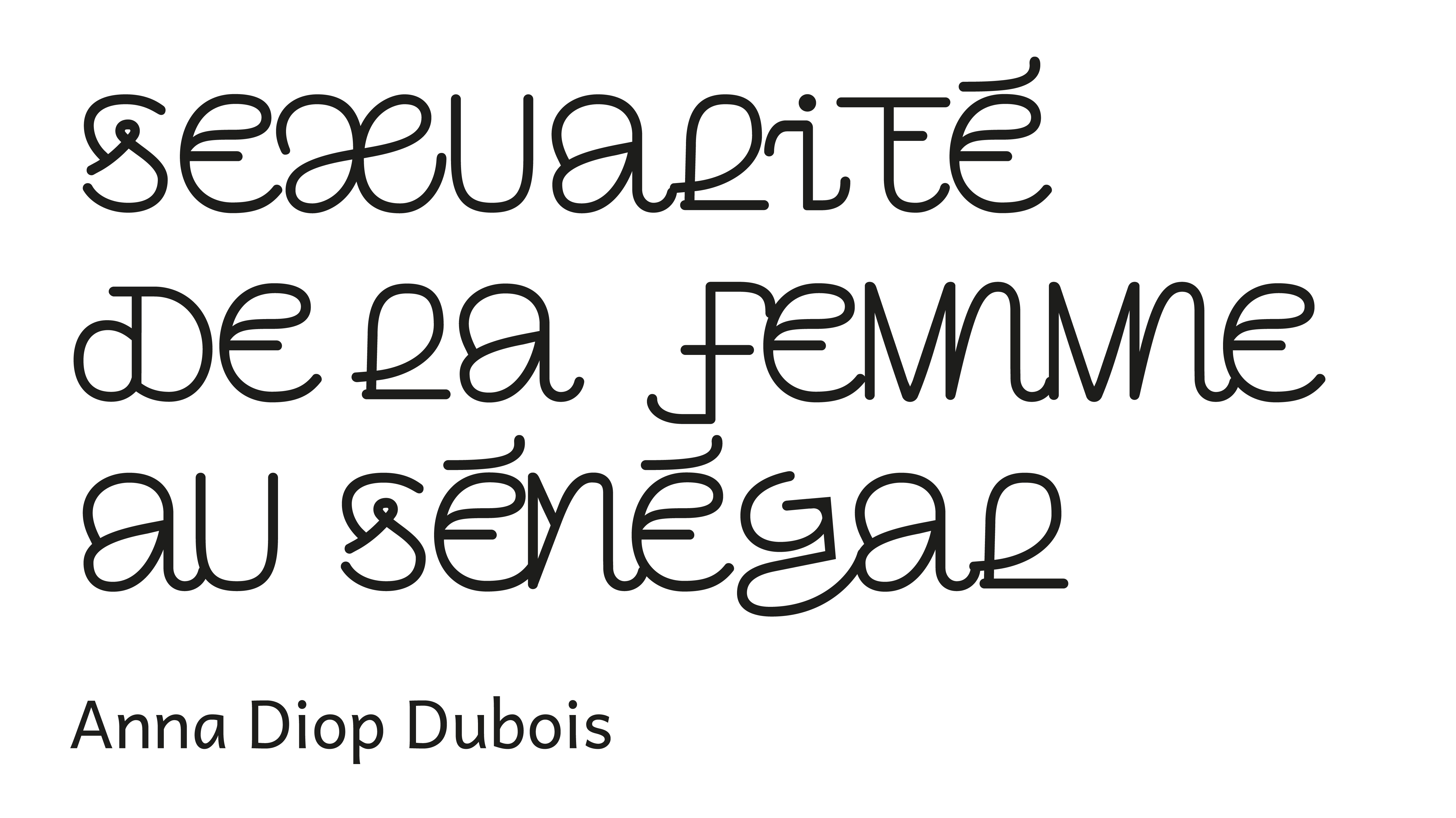
Choreographic artist and researcher
Choreographic and imagery artist, researcher of Afro-diasporic and urban dances, extemporary dancer and pedagogue, her practices are woven through the act of travelling. Her work is situated among the notions of transit, displacement, belonging, superposition, memory, colors and ordinary gestures. In 2020 she created the structure NA MATA LAB.
Amid her audiovisual works stand out NoirBLUE — the displacements of a dance (2018 - 27'), her first documentary, and VÓS (2011 - 5'30), her first video essay. THE DIVINE CYPHER, Fumaça, Meditation on Beauty, èscultura, O BΔNQUETE, COROA, NoirBLUE, DRW2 and Le Tour du Monde des Danses Urbaines en 10 villes, are her pieces that articulate choreography, discourse and installation. CORPO FIRME ; danças periféricas, gestos sagrados is the name of the practice she has been developing and sharing since 2010.
Designer and researcher
Designer graphique diplômée de l’École Supérieure d'Art et Design de Saint-Étienne et étudiante en master d'anthropologie biologique à l'Université de Cheikh Anta Diop à Dakar, Sénégal. Elle s'attache à créer du lien entre sciences sociales et arts visuels et s'intéresse par ailleurs à l'usage d'outils de création libres (FLOSS).
Web developper
Romain Baudot is a polyvalent web developper, based in Nancy, France.
Enseignant-chercheur en histoire de l'art
Enseignant-chercheur en histoire de l'art contemporain à l'Université Rennes 2, depuis septembre 2015.Ses travaux portent sur les interactions entre création artistique, histoire de l'art et sciences humaines et sociales dans la seconde moitié du XXe siècle, sur des œuvres et travaux apparentés à l'Art Brut et sur l'épistémologie de l'histoire de l'art pensée en regard du primitivisme. Depuis 2020, il codirige le département d'Histoire de l'art et archéologie et encadre depuis 2019 le Master 2 parcours "Métiers et arts de l'exposition" de Rennes 2, consacré aux pratiques de l'exposition dans le champ de l'art contemporain. Ses activités de recherche se prolongent dans un travail de commissariat d'expositions et de conférences- performances.
Architecte, fondatrice de la revue Afrikadaa
Architecte, fondatrice de la revue Afrikadaa et de Balades Architecturales de Dakar. Elle a co-conçu l'exposition Dakarmorphose sur l'évolution des villages lebou, lors de la biennale d'art contemporain de Dakar en 2018. Elle a également représenté le Sénégal au Forum Mondial des Jeunes Architectes.
Graphiste, enseignant, chercheur
Graphiste. Il vit à Bienne où il est maître principal à l'Ecole d'arts visuels. Chargé de cours à Genève, il a été professeur des hautes écoles de Suisse occidentale. De 2009 à 2016, il a dirigé l'unité d'enseignement et de recherche Media Design à la HEAD. Auparavant il a exercé en qualité de graphiste, comme assistant, enseignant, chargé d'études et de projets, expert et conseiller artistique. De 2016 à 2017, il a été enseignant en apprentissage au sein de l'Institut supérieur des arts et métiers du numérique, au Sénégal. Il a également été cocommissaire la 6e édition du festival Afropixel produit par Kër Thiossane pour « des utopies non-alignées », en 2018. Ses récentes recherches portent sur le design et le graphisme des documents qui ont été archivés à Neuchâtel et par la Confédération suisse dès le mitan des années 1960, avant et après que cette dernière fut hôte de la République du Sénégal lors d'une exposition du Musée Dynamique. Actuellement avec [avec Carole Diop, Nzinga Mboup et Matthieu Jaccard], il travaille sur les rencontres pour apprendre de Dakar du forum d'architectures de Lausanne.
Curator and art historian
British curator and art historian who lives in Dakar, Senegal. She is Curator of Programs at RAW Material Company in Dakar where she has co-curated numerous exhibitions including Toutes les fautes qu'il y avait dans le monde, je les ai ramassées (2018), PO4 (Blackout) (2019) and The School of Mutants (2021). Recent discursive projects of note with RAW Material Company include Kan jaa ta; From the shadow into the light (Bamako Encounters Photography Biennale, 2019), Condition Report 4: Stepping out of line; Art collectives and translocal parallelism (Dhaka Art Summit, 2020) and the public programme of the Sex Ecologies exhibition (Kunsthall Trondheim, 2021). Her work in Senegal has included research on diverse topics ranging from the country's performance art history to the nexus of hip hop and contemporary art in the country, and her writing has been published in SUNU Journal, Art Basel Stories, Making & Breaking, ESPERANTO and Obieg. Dulcie has also been a member of artist's collective Les Petites Pierres..
Graphiste, typographe, enseignante et chercheuse
Graphiste et typographe française, enseignante et chercheuse intéressée par les enjeux d'un héritage artistique et culturel africain et créole dans l'art et le design contemporain. Après un master de design graphique où elle s'intéresse à la visibilisation dans les mediums de communications aux modèles féminin noirs elle étudie le cas des jeunes systèmes d'écriture de la diaspora africaine et créole et les enjeux derrière leur intégration aux outils numériques . Elle s'inspire de leur généalogie et leurs contextes de création afin de déconstruire cet héritage et proposer des formes adaptées à leur valorisation. Elle se penche sur le cas de l'Afáka, un système d'écriture créole et marron du Suriname dont la création et le développement sont particulièrement influencés par les familles de systèmes d'écritures de l'Ouest du continent africain. Sa réflexion sur notre héritage et notre perception en Occident des signes et images de l'Ouest de l'Afrique se poursuivent avec l'identité visuelle qu'elle dessine pour l'événement Africa2020 à Nantes, l'Université des Futurs Africains menés par Oulimata Gueye. À travers ses projets, motivés, elle cherche à définir un espace d'accueil favorable à ces savoirs et leurs acteurs dans des sociétés et institutions occidentales. Son enjeu à l'Assemblée des mutants est de mettre en lien cette question d'héritage avec un plus large panels de savoirs ouest-africains.
Porteuse du projet BäTisseurs
Bäntu du Monde entier. Une planéTerrienne dans l'Univers qui a élu domicile au Sénégal depuis 2016. Sa pratique se nourri de la richesse d'un parcours de vie singulier, inscrit dans des géographies multiples, une conscience animiste de la Vie, et des savoir-faire appris au gré d'expériences vécues dès l'âge de 12 ans dans l'économie populaire au Gabon, mais aussi à l'université en France plusieurs années plus tard. Après une quinzaine d'années d'intervention dans le secteur de la coopération internationale, elle crée Bä tisseurs en 2021. Il s'agit d'une initiative dont la démarche implique le démantèlement des mécanismes qui enferment les communautés africaines dans le déni de leurs savoirs endogènes et dans le mimétisme systématique de modèles de développement hérités de la colonisation. Ce faisant, Bä tisseurs accompagne des dynamiques territoriales alternatives à petite échelle, dont les enseignements pourraient nourrir les fondements d'une éthique africaine de la Vie et des établissements humains.
Commissaire d'exposition et médiatrice culturelle
Commissaire d'exposition et médiatrice culturelle diplômée de l'Université Paris 1 (Panthéon-Sorbonne), en Sciences et Techniques de l'Exposition. Après de nombreuses années dans le domaine de l'accueil et de la médiation culturelle au sein d'institutions telles que le Musée du Louvre, le Musée Rodin, le Grand Palais et la Fondation Louis Vuitton ; elle est rentrée à Dakar en 2018 et a accompagné l'ouverture du Musée des civilisations noires. Elle est aujourd'hui commissaire des programmes à RAW Material Company, où elle a récemment co- commissarié, « Le Spectre des Ancêtres en Devenir » par Tuan Andrew Nguyen (2022), « L'École des Mutants » par Hamedine Kane & Stéphane Verlet-Bottéro (2021), « D'une rive à l'autre » par Ibrahima Thiam (2020); et a co-dirigé les programmes discursifs suivants Convocations, « Sex Ecologies » — Kunsthall Trondheim x The Seed Box, (2021) ; « Respirer hors école, RAW Académie » — Bivouac #2, Bétonsalon, (2020). Ses écrits ont été publiés dans des ouvrages et revues tels que, Oh! AfricArt : 52 artistes contemporains africains, 2021 ; Something We Africans Got #10 ; SWAG high profiles #2 & #3. Ses recherches se concentrent sur les politiques culturelles du Sénégal des années 60 à nos jours, ainsi que les dynamiques de marché qui agissent sur la scène artistique contemporaine du continent et de sa diaspora. Elle vit et travaille à Dakar.
Economiste, musicien, auteur
Agrégé d'économie, est également musicien, auteur de plusieurs essais, d'œuvres de théâtre et de récits. Il enseigne l'économie pendant treize ans à l'Université Gaston-Berger à Saint-Louis du Sénégal. Ses recherches universitaires portent sur les politiques économiques, l'économie du développement, l'économétrie, l'épistémologie et l'histoire. Depuis 2021 il est professeur de philosophie africaine à Duke University, aux Etats-Unis. Afrotopia (Philippe Rey, 2016) est un best-seller mondial. En 2016, en compagnie du philosophe Achille Mbembe, il fonde les Ateliers de la pensée qui ancrent l'actualité de la réflexion sur l'Afrique à partir de Dakar. En 2018 Felwine Sarr est chargé avec Bénédicte Savoy, du Rapport sur la restitution du patrimoine culturel africain, Vers une nouvelle éthique relationnelle. Sa maison d'édition Jimsaan, créée avec l'écrivain Boubacar Boris Diop, publie entre autres, à prix local, les œuvres du Prix Goncourt 2021 Mohamed Mbougar Sarr, en coédition avec Philippe Rey. Il est l'auteur entre autres de Dahij, 2009, 105 Rue Carnot, 2011, Habiter le monde, 2017, Écrire l'Afrique- Monde (avec Achille Mbembe), 2017,Traces - Discours aux Nations africaines, 2021. Son dernier roman, Les lieux qu'habitent mes rêves est publié cette année.
Artist and film-maker
A Senegalese and Mauritanian artist and director, lives and works between Brussels and Dakar. Through his practice, Kane frequents borders, not as signs and factors of impossibility, but as places of passage and transformation, as a central element in the conception of an itinerant identity. After ten years of exile in Europe, his practice now focuses on themes of memory and heritage. In his work, past and future are intertwined, transgressing and irrigating the boundaries of space and time. In 2020 Kane participated in the Momenta biennial in Montreal, and in various exhibitions as part of the Africa 2020 season in France. In 2018 in Dakar, he co-initiated The School of Mutants. His film The Blue House, which had its world premiere at the IDFA in Amsterdam in November 2020, received the special mention of the jury.
Researcher and Point Sud coordinator
Issa Fofana est enseignant-chercheur en géographie au sein de la FHG au sein de l'Université des Sciences Sociales et de Gestions de Bamako.
Writer and professor of sociology and anthropology
Professor of sociology and anthropology and a writer, currently based at the University Omar Bongo in Libreville, Gabon. His areas of research are the anthropology and sociology of the social imaginary of bodies, power, screens, therapeutic cults and the utopia-dystopia of the neoliberal era. Notably, he has published Afrodystopie. La vie dans le rêve d'Autrui (2021) ; L'impérialisme postcolonial. Critique de la société des éblouissements (2015) ; Le Souverain moderne. Le corps du pouvoir en Afrique centrale (Congo, Gabon) (2005), translated into American English in 2020; La guérison divine en Afrique centrale (Congo, Gabon) (2002), and two novels, Chiens de foudre, out of stock and currently under re-edition, and Tuée-tuée mon amour (2017).
Art historian and researcher
After completing a BA at the Free University of Berlin and a MA at the University of Arts and Design in Karlsruhe, she received her PhD in Art History from the Ludwig Maximilian University of Munich (LMU) in 2017. As a candidate of the international doctoral program MIMESIS at LMU from 2013 to 2016, she undertook research visits to Dakar, New York City and Paris, completing her PhD dissertation on the cosmopolitan arts in post-independence Senegal. In 2016/2017, she was a research fellow at the German Forum for Art History in Paris in the context of the annual theme L'art en France à la croisée des cultures. Thereafter, she was a post-doctoral researcher in the ERC funded project Developing Theatre: Building Expert Networks for Theatre in Emerging Countries after 1945 at LMU until she joined the Bilderfahrzeuge research group at Humboldt University Berlin.
Designer, curator, dramaturge, scholar and publisher
German-Scottish designer, curator, dramaturge, scholar and publisher based in Amsterdam. Working in changing international constellations between art, science and design, Julien brings artistic and scholarly sensibilities to the often participatory production of exhibitions, performances, books, events, strategies and teaching formats. His focus is on mobility, digital cultures, sustainable practices, experimental publishing and more-than-human, post-colonial modes of collective sense-making.
Founding director of Cairo Institute of Liberal Arts and Sciences
Founding director and curator of the Cairo Institute of Liberal Arts and Sciences. As an educator and writer based in Cairo, Egypt, he combines his background in philosophy and urbanism with body-based practices, including tea rituals and Qigong. Goessinger is an active member of the Ecoversities Alliance and advocates for the use of decolonial pedagogies to denaturalize colonial frames of reference and modern institutions. He enjoys telling stories over tea about pigeons and pedagogy.
Researcher in social anthropology
Titulaire de la chaire d'anthropologie sociale et culturelle à l'Université de Bayreuth. Elle est co-fondatrice du pôle d'excellence « Africa Multiple: Reconfiguring African Studie » et elle est membre de la section de recherche « Knowledges ». Les recherches de Katharina Schramm sont l'interface de l'anthropologie politique, du patrimoine/mémoire et des études scientifiques et technologiques. Elle a publié de nombreux ouvrages sur la race, l'appartenance et la politique de la différence dans divers contextes. Ses premiers travaux au Ghana portaient sur les politiques culturelles, les identités diasporiques et la contestation de l'appartenance raciale. Elle a travaillé sur la mémoire et l'héritage de l'esclavage au sein de la diaspora africaine (Schramm 2010). Au cours des dix dernières années, elle a effectué des recherches en Afrique du Sud, où elle s'est concentrée sur la coproduction de la science et de la politique au lendemain de l'apartheid. Elle a contribué de manière significative aux conversations savantes sur la race et la génomique ainsi qu'à la question contestée des restes humains et des spectres du colonialisme dans les collections scientifiques, y compris l'ethnographie (Schramm 2016). Un autre volet de ses recherches concerne les questions de citoyenneté et de subjectivité politique (Schramm et Krause 2018).
Artist-animist
I am an artist-animist An extraordinary artist. An explorer of visible worlds. A night light. A researcher of invisible traces and of a time to come. An adventurer in the psychic, cellular and atomic bodies. A woman listening to trees, medicinal plants, stones and crystals... An artist whose ART-of-LIRING is an ART-of-LIVING and an ART-of- DREAMING. I am a body traversed by Earth and simultaneously other multidimensional units on my journey of earth evolutionary exploration. I am destined to go beyond physical borders and to open a passage towards other sensitivities (without forms and without images)... Mont art is eminently metaphysical. I read the interior of the body and I interpret through the palettes of colors and lights what each body claims and asks for. The scores and sound compositions produced so far represent The Metaphysics of Sounds, the secrets of which have not all been revealed. In 2018, and again in 2019, I was able to present my first two ExposiSONS or EXPO-SOUND through two artistic programs entitled The Visionaries and Energeia - organised in Paris, by the Musée de l'Invisible and the curated by the Historian of Contemporary Art - Pascal Pique. EXPO-SOUND was my way of conceiving 13 slide shows (or 13 sound cards) based on thirteen artistic works. I created for each of the thirteen French artists an energy photo accompanied by a sound of the photo from each artistic work. Each sound photo was represented by the result of a spectrogram. In other words, for each sculpture, painting or drawing, I conceived a sound score, whose sound signature of each work reveals a photo of energy visible through a spectrogram. This first experimental sound exhibition was presented in an exhibition in Paris, entitled Les Visionaries. In 2018, curator Pascal Pique has taken the sound and energy photos and energy photos to present them in another exhibition, entitled Energeia. During the confinement of 2020, I was invited to join an international art event in Istanbul. This exhibition - Kristal Berrakligi - Crystal Clear - was organised by the curator Elena Sorokina and the Pera Museum.
Auteur, compositeur, interprète
Auteur compositeur interprete. Né à Mbao, il a participé dans l'album de all right dou faye avec un son titré Underground. Avec le titre So Confused, une chanson incluse dans la mixtape Afrik Hip Hop Mixtape Vol. 2 qui regroupe différents artistes rappeurs venus de plusieurs pays d'afrique, Leuz Diwane G a su marquer son empreinte dans le hip hop sénégalais.
Research and contributing editor of Chimurenga
Contributing editor of Chimurenga, contributor to Dakar based Wolof news site Lu Defu Waxu and PhD candidate at the department of Middle Eastern, South Asian and African Studies at Columbia University. Between 2010 and 2019, he wrote on artistic practices in Dakar, and political and cultural histories of postcolonial West Africa. He is now conducting research on the secular from the vantage point of the history of secularism in Senegal. His research focuses on the institutional afterlives of colonialism in West Africa and straddles the disciplinary fields of political theory, postcolonial and conceptual history.
Réalisateur militant pour l'accès au cinéma
Après des études d'Histoire à l'Université de Dakar, s'est lancé dans le cinéma en militant pour l'accès au cinéma pour la population de la banlieue de Dakar puis de passer à la réalisation. Jouant de la débrouille et puisant dans l'énergie collective de sa génération pour produire et diffuser leur cinéma. Il défend l'idée que l'art doit faire place aux gens ordinaires, et participer à la représentation et à la prise de conscience des réalités sociales et politiques, parfois difficiles. Films en cours : Les Musiciens du vendredi, documentaire, 52 min. Les Films de l'Atelier, Résidence d'écriture et Rencontres Tënk de coproduction de Saint-Louis, Africadoc, Résidence d'écriture documentaire de Safi (Maroc). Saraba, web-documentaire, 2017. Kédougou a reçu le Tanit de Bronze 2018, section court-métrage documentaire aux Journées Cinématographiques de Carthage, Tunisie et le Grand prix du Jury AIRF 2017, section courtmétrage documentaire au Festival du film documentaire de Saint-Louis, Sénégal
Historien et enseignant-chercheur
Enseignant-chercheur formé au département d'histoire de l'université Cheikh Anta Diop de Dakar(UCAD), Sénégal et à l'Amsterdam Institute for Social Science Research (AISSR) de l'université d'Amsterdam (UvA). Titulaire d'un doctorat en histoire, il est Maitre de Conférences Assimilé, professeur d'histoire et responsable pédagogique de la licence histoire de l'université du Sine Saloum El hadji Ibrahima Niass (USSEIN), campus de Kaffrine. Il est aussi titulaire d'un CAES (certificat d'aptitude au professorat) en histoire-géographie. Il est membre du Moving Matters Programme du département d'anthropologie /AISSR de l'université d'Amsterdam. Il fait partie du ‘'Weatherhead Initiative on Global History'' un réseau international académique qui regroupe des historiens du Sénégal(UCAD et USSEIN), Harvard University(USA), University of Delhi(Inde), IISH(Pays Bas), Universidade de Sao Paulo(Brésil) et East China Normal University of Shanghai(Chine. M. Sy fait partie du comité de pilotage du Projet d'Ecriture de l'Histoire Générale du Sénégal des origines à nos jours. M. Sy est l'auteur de la monographie consacrée à l'histoire du Dimat et à Elimane Boubacar Kane. M. Sy est aussi conférencier, panéliste et à ce titre, il a présenté de nombreuses communications scientifiques à travers le monde.
Professor, director of the University of Human Rights
Doutora em Comunicação e Semiótica, documentarista e professora de Ciências da Comunicação e Informação da Universidade Federal de Minas Gerais (UFMG), Belo Horizonte - Brasil. Como documentarista, dedica-se às culturas populares e aos saberes tradicionais. O trabalho documental que realiza visa compreender os contornos e os desvios semióticos que compõem o imaginário cultural brasileiro em diálogo com a África e sua diáspora. Nesse contexto, seus estudos tomam como referência as narrativas dos sujeitos e os documentos gerados nos processos criativos. Entre 2012 e 2018, produziu cerca de vinte documentários que tomaram como referência as histórias de vida de artistas das culturas tradicionais e populares brasileiras e seus processos criativos em articulação com a condição social e o território.
Atualmente é diretora da Universidade dos Direitos Humanos (UDH) da Universidade Federal de Minas Gerais (UFMG).
Curator
Curator and cultural practitioner from Dakar, Sénégal. She worked as Director of Programs at RAW Material Company where she has organized exhibitions and related discursive programs including the participation of RAW to “We face forward: Art from West Africa Today” Whitworth Art Gallery, Manchester; ICI Curatorial Hub at TEMP, New York; The 9th Shanghai Biennial, Shanghai; MARKER Art Dubai (2013).
She co-curated Scattered Seeds in Cali-Colombia (2015-2017) and curated Battling to normalize freedom at Clarkhouse Initiative in Mumbai, India (2017). Pereira was a co-curator of Canine Wisdom for the Barking Dog - The Dog Done Gone Deaf. Exploring The Sonic Cosmologies of Halim El-Dabh at the 13th edition of Dakar Biennale of Contemporary African art (2018), as well as Still Present! - the 12th edition of Berlin Biennale (2022).
In 2021 she was selected as one of the recipients of the ICI Curatorial Research Fellowship - a Marian Goodman Gallery initiative conceived by artist Steve McQueen - in honor of the late Okwui Enwezor.
Pereira has a strong interest in politics of identity and histories of migration.
Directrice co-fondatrice de Kër Thiossane
Curatrice d'art numérique et directrice co- fondatrice de Kër Thiossane, Villa pour l'art et le multimédia basée à Dakar. Fondée en 2003 dans le but de fournir aux artistes africains un accès aux outils multimédias, Kër Thiossane a contribué de manière significative au développement de la scène africaine des arts numériques et est présente à Dakar avec d'importantes contributions à la Biennale Dak'Art ainsi qu'aux événements et institutions culturelles locales. Les projets artistiques et les résidences de Kër Thiossane ont, entre autres, exploré les possibilités de globalités technologiques alternatives et de biens communs numériques. Dans le cadre de ce travail qui, au-delà des circuits artistiques internationaux et africains, s'adresse à la communauté locale, le centre gère un jardin communautaire et le premier FabLab de Dakar. Kër Thiossane a également lancé le premier festival africain d'arts numériques Afropixel en 2008, une plateforme importante pour l'art numérique sur le continent.
Architect
Architect. He is currently working with Aziza Chaouni on a study of the CICES building in Dakar, to develop a comprehensive conservation plan for the complex.
Artiste vidéaste-plasticienne
Artiste vidéaste-plasticienne (Nouvelle- Calédonie/Indonésie), basée à Mayotte.
Son travail s'articule autour de vidéos, dessins, textes, installations. Elle prend en compte une géographie et son histoire, en explorant la notion de multiplicité dans un monde connecté et multipolaire. Ses origines javanaise et calédonienne questionnent l'idée d'une identité qui se déconstruit à travers la quête de l'histoire et du passé. Ses travaux récents interrogent l'héritage de la conférence de Bandung en Indonésie de 1955, dans le contexte actuel des constructions d'identités post-coloniales et dans une décolonialité des savoirs. Elle participe à la section Rendez-Vous de la Biennale de Lyon 2017 qui se prolonge au Centre Wilfredo Lam de la Havane en 2018.
En 2019, elle participe au colloque de la Casa de las Americas à Cuba«60 ans de Révolution, Rebelles et Révolution». En janvier 2020, elle est invitée pour la Nuit des Idées par le centre d'art Le Magasin avec Minia Biabiany, Jean-François Boclé et Malcom Ferdinand autour d'une réflexion sur une écologie décoloniale. Elle co-construit le projet « En des lieux sans merci » avec 3 autres artistes des outre-mer françaises ( Guadeloupe, Martinique, Réunion) qui interroge la notion archipelique chère à E.Glissant et les multitudes d'imaginaires fantasmés qui émanent de leurs îles afin de fabriquer d'autres réels défaits d'exotismes et de colonialités.
Performeuse et comédienne
Se produit depuis 1995 sur les scènes nationales françaises, caribéennes et africaines. Elle se forme auprès de grands metteurs en scène comme Philippe Adrien et Sotigui Kouyate et suit des trainings d'acting auprès des coachs Neil Shell, Bernard Hiller, Bob Mac Andrew ou encore Yves Sioui Durand. D'âme nomade, au point d'équilibre de sa multiplicité et convaincue de la force transformatrice du théâtre, elle a accompagné plusieurs groupes en milieu social défavorisé et coaché déjà un certain nombre de comédiens, notamment au Sénégal où elle réside actuellement. Très attachée à la notion de présence et à la vérité de l'instant, elle pratique de nombreuses performances, dont certaines consistent à habiter un territoire artistique autre, tel ceux du sculpteur Jems Kokobi et de la créatrice Johanna Bramble, ou encore celui du koriste Ablaye Cissoko. En 2019, elle lit Les Essais Politiques de Aimé Césaire au Panthéon, et joue Dernier Rivage de Daniel Keene sous la direction de Hassane K. Kouyaté. En 2018 elle crée à Dakar la compagnie La Lune Nouvelle et en prend la direction artistique. En 2021, elle entre en co-production avec RAI pour Les restes Suprêmes et la compagnie Nous Théâtre pour L'Amour telle une cathédrale ensevelie.
Artist
Lives and works in Johannesburg. As a trained architect (University of the Witwatersrand in Johannesburg), he also has a master's degree in Art, Culture and Technology from the Massachusetts Institute of Technology (MIT). In his work, he explores what he calls"a black consciousness of space: the material and metaphysical conditions for decolonization".
Writer, journalist, DJ, founding editor of Chimurenga
Cameroonian writer, journalist, DJ and the founding editor of Chimurenga magazine (established in 2002), a pan African publication of culture, art, and politics based in Cape Town. The title Chimurenga refers to the Shona word for ‘struggle', as well as to a popular music genre in Zimbabwe. Ntone Edjabe's practice as a DJ weds musical erudition and explicit political engagement centered on Africa's place in the world. In 2004, he was facilitator of Time of the Writer and in 2007, he participated in its 10th edition at the Centre for Creative Arts of the University of KwaZulu-Natal. Ntone Edjabe is co-founder and member of the DJ collective Fong Kong Bantu Soundsystem. In 2009, he was Massachusetts Institute of Technology Abramowitz Artist-in-Residence. Ntone Edjabe also started the Pan African Space Station (PASS), an Internet radio platform streamed live across the African world. In 2011, he won the Principal Award of the Prince Claus Awards and in 2014, he was a researcher-in-residence at KHOJ.
Critique et commissaire d'exposition
Philosophe
Philosophe et politiste, actuellement chercheuse (HDR) au LCSP de l'Université Paris Cité et enseignante à L'Ecole Estienne (ESAIG) à Paris. Elle a été directrice de programme au Collège International de Philosophie (2010-2016) et a enseigné la théorie politique à l'Institut d'Etudes Politiques de Paris (1990-2005). Elle est l'auteure de plusieurs ouvrages Les miroirs vagabonds ou la décolonisation des savoirs (arts, littérature, philosophie) en 2018, L'Afrique et ses fantômes, Ecrire l'après, en 2015; Les Arabes peuvent-ils parler? En 2011 et Le Singe de Kafka et autres propos sur la colonie en 2008. Elle a dirigé des ouvrages collectifs dont , Dix penseurs africains par eux-mêmes, paru en 2016. Son travail porte sur la décolonisation, en particulier la décolonisation des savoirs.
Artist, ecologist, curator
Artist, ecologist, and curator. His practice develops collective situations of education and action, rooted in spaces of eco-social mutation. It takes the shape of gatherings, performances, public art, and multimedia installations. In 2018, he co-initiated The School of Mutants, a Dakar-based collaborative art and research platform. His work has been exhibited at: ZKM, Karlsruhe; Centre Pompidou Metz; 12th Berlin Biennale; 14th Dakar Biennale; RAW Material Company, Dakar; Het Nieue Instituut, Rotterdam; Moussem Festival, Brussels; 12th Taipei Biennial; 7th Oslo Triennale; Le Lieu Unique, Nantes; CIAP Vassiviere; Science Museum, London. He collaborates regularly with ZKM (Karlsruhe) and has had curatorial collaborations with Taipei Fine Arts Museum, NA Project, Institut Kunst (Basel), Inland (Madrid), dOCUMENTA (13).
Researcher, writer and creative
Senegalese researcher, writer and creative. She graduated in Political Science and International Relations. She discussed the 'presence-absence' of women in politics in Senegal in the collective book "Politisez-vous!", 2017. For the 13th edition of the Biennale of Contemporary African Art in Dakar in 2018, she worked for the OFF Commission.
Tabara Korka is particularly interested in how the future can be shaped with personal stories. Her research interests include women's discourse in hip hop, the struggles worn by females activists in the political and the historical trajectory of Senegal and the discourse of african(s) feminist(s). She is also a research assistant at RAW Material Company, Dakar. She lives and works in Dakar.
Poète
Depuis tout petit, il est sous le charme de la poésie. A ce jeune âge, sa tête lui semblait être « remplie d'idées folles », ce qui le démarquait des autres. Ses racines poétiques se trouvent principalement dans les villages ruraux où il travaille depuis de nombreuses années avec des organisations locales et internationales. Un«poète errant», il a néanmoins publié plusieurs recueils de poésie en wolof et français, dont Kër Dof, Bouffées délirantes et L'Envol des pélicans, préfacé par le romancier sénégalais Cheikh Hamidou Kane. Ses poèmes à la fois affirment et remettent en cause les cultures et valeurs locales et traditionnelles, et interpellent ses audiences, peu importe leur âge, genre ou statut, à défendre l'environnement, l'égalité et la justice sociale, surtout par rapport aux femmes et aux enfants. Sall a également collaboré avec des musiciens, et travaille de plus en plus avec les nouveaux médias, la télévision, la radio et les plateformes digitales pour partager son travail.
